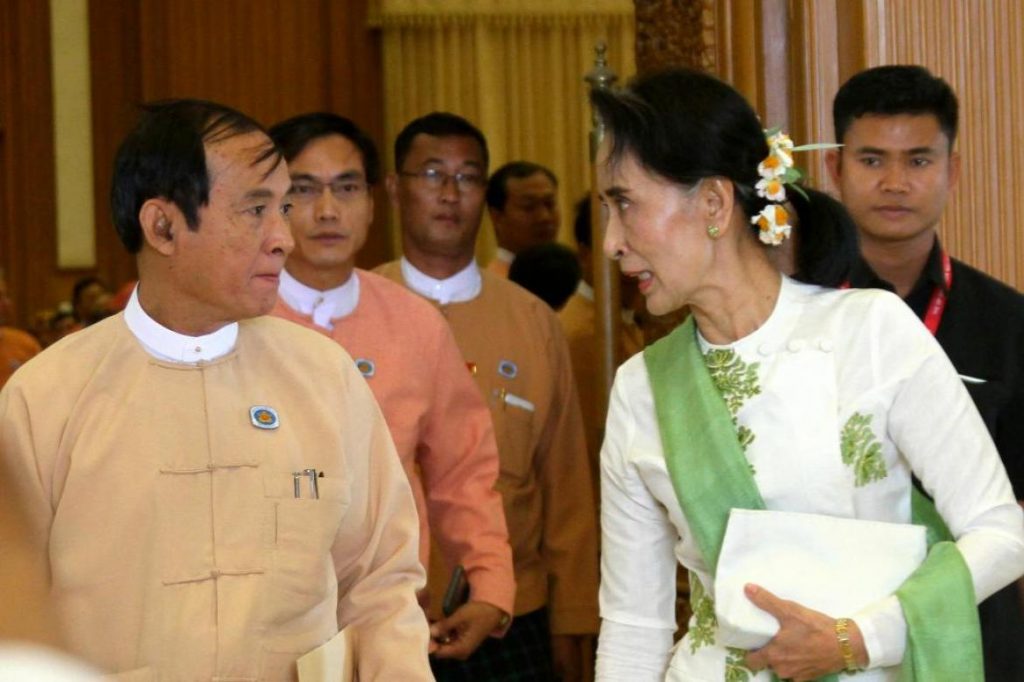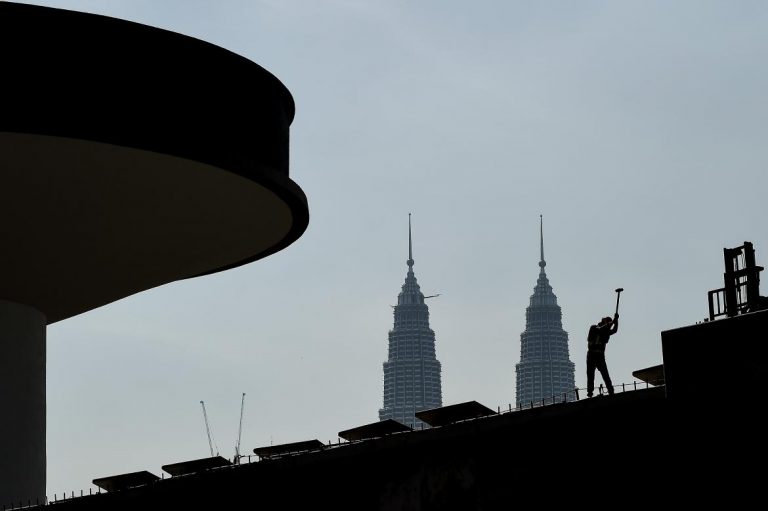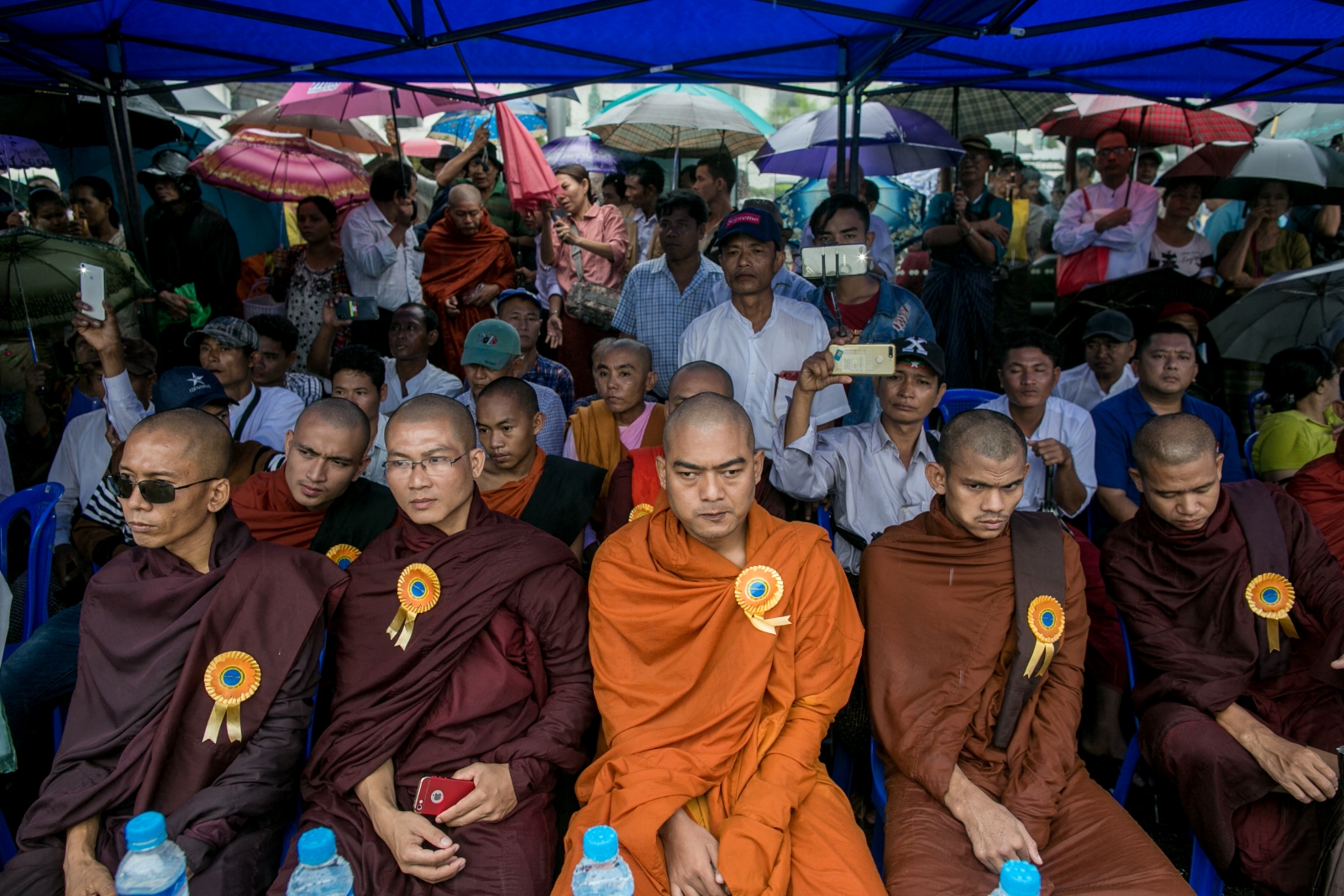Military says coup is constitutional and installs military vice president as head of state, following the nighttime arrest of the president, state counsellor, and regional and state authorities.
By FRONTIER
The Tatmadaw has seized executive, judicial and legislative power for a year, said a military statement this morning, following the overnight arrest of senior government leaders, including State Counsellor Daw Aung San Suu Kyi, President U Win Myint, and the chief ministers of Myanmar’s states and regions.
The statement that was broadcast on Tatmadaw-controlled media shortly after 8am cited article 417 of the constitution, which permits a military takeover in the event of an emergency that threatens Myanmar’s sovereignty, or that could “disintegrate the Union” or “national solidarity”.
Vice President U Myint Swe, who is already a military appointee, will be Myanmar’s interim president, the statement continued. It added that the takeover was justified by the need to resolve “huge” instances of alleged fraud in the November 8 election, which the Tatmadaw said endangered the “sovereignty of the people”.
The statement also said that wide-spread protests on opposite sides of the political divide, both in support of election fraud claims and in support of the elected government, was “threatening national stability”.
The coup comes on the day that the new parliament was to begin, starting with a session of the Pyithu Hluttaw, Myanmar’s lower house. The upper and lower houses were to elect speakers this week, with the selection of president by a joint session of parliament due in March.
According to sources in the capital Nay Pyi Taw, talks yesterday between senior government and military officials failed to reach a breakthrough, with the government refusing military demands that the start of parliament be postponed until its claims of election fraud are addressed.
The Aung San Suu Kyi-led National League for Democracy won the election in a landslide that outdid its historic 2015 victory, leaving the military-aligned Union Solidarity and Development Party humiliated. In the months since the vote, the military, USDP and some small allied parties have waged a campaign to discredit the election, pointing to widespread errors in voter lists and irregularities during advance voting by elderly citizens.
The Union Election Commission, which is wholly appointed by the government, has dismissed all allegations of fraud. It has also refused to share or publish the final copies of voter lists that were displayed on election day. The USDP and military have also tried to pursue its fraud claims by filing a writ application at the Supreme Court and by calling a lame duck session of the outgoing parliament. However, UEC decisions are final under the constitution and the commission has sole jurisdiction over electoral disputes.
The military on Saturday disclaimed that it would violate the 2008 Constitution, which was drafted under junta rule, leading many to conclude that a coup had been averted. The military claimed the media had misinterpreted a speech given earlier in the week by Senior General Min Aung Hlaing to Tatmadaw cadets, in which the commander-in-chief said that if the constitution is “not respected or followed, we must abolish it”.
While the military has said that its takeover is constitutional, Myanmar legal expert Professor Melissa Crouch wrote in a blog post published today that “section 417 is supposed to be at the initiative of the President in consultation with the National Defence and Security Council”.
The section says, “the President may, after coordinating with the National Defence and Security Council, promulgate an ordinance and declare a state of emergency”.
The NDSC is dominated by the military but it is unclear how binding its decisions are regarding states of emergency, given that the constitution seems to grant it only a “coordinating” role.
President Win Myint has not been heard from since his arrest early this morning. “We heard the President [Win Myint] and the State Counsellor have been detained in Nay Pyi Taw… we heard they were taken by the military,” NLD spokesperson Dr Myo Nyunt told the AFP newswire.
Crouch later wrote on Twitter that the “military appears to be relying on section 73”. This allows the vice president “to serve as Acting President if the office of the President falls vacant due to his resignation, death, permanent disability or any other cause”. Crouch added, “Not appropriate for the military to take the president out of action though”, referring to Win Myint’s arrest.
Mobile phone networks are inactive, though broadband internet services remain connected in Yangon. Frontier has not been able to reach its reporters in Nay Pyi Taw. National broadcaster MRTV has gone silent, and popular satellite provider Skynet has stopped airing the BBC and CNN.
Despite targeted arrests, the situation in Yangon remains broadly calm with many shops and food stalls receiving customers and Buddhist monks doing alms rounds, though early morning markets were crowded with people buying emergency provisions.
However, soldiers have closed down Yangon’s City Hall, the seat of the municipal government. An AFP journalist saw five military trucks inside the city hall compound, with soldiers turning people away as they arrived for work.
NLD spokesperson Myo Nyunt urged citizens to remain calm.
“I want to tell our people not to respond rashly and I want them to act according to the law,” he told Reuters in a telephone interview, adding that he also expected to be detained.







